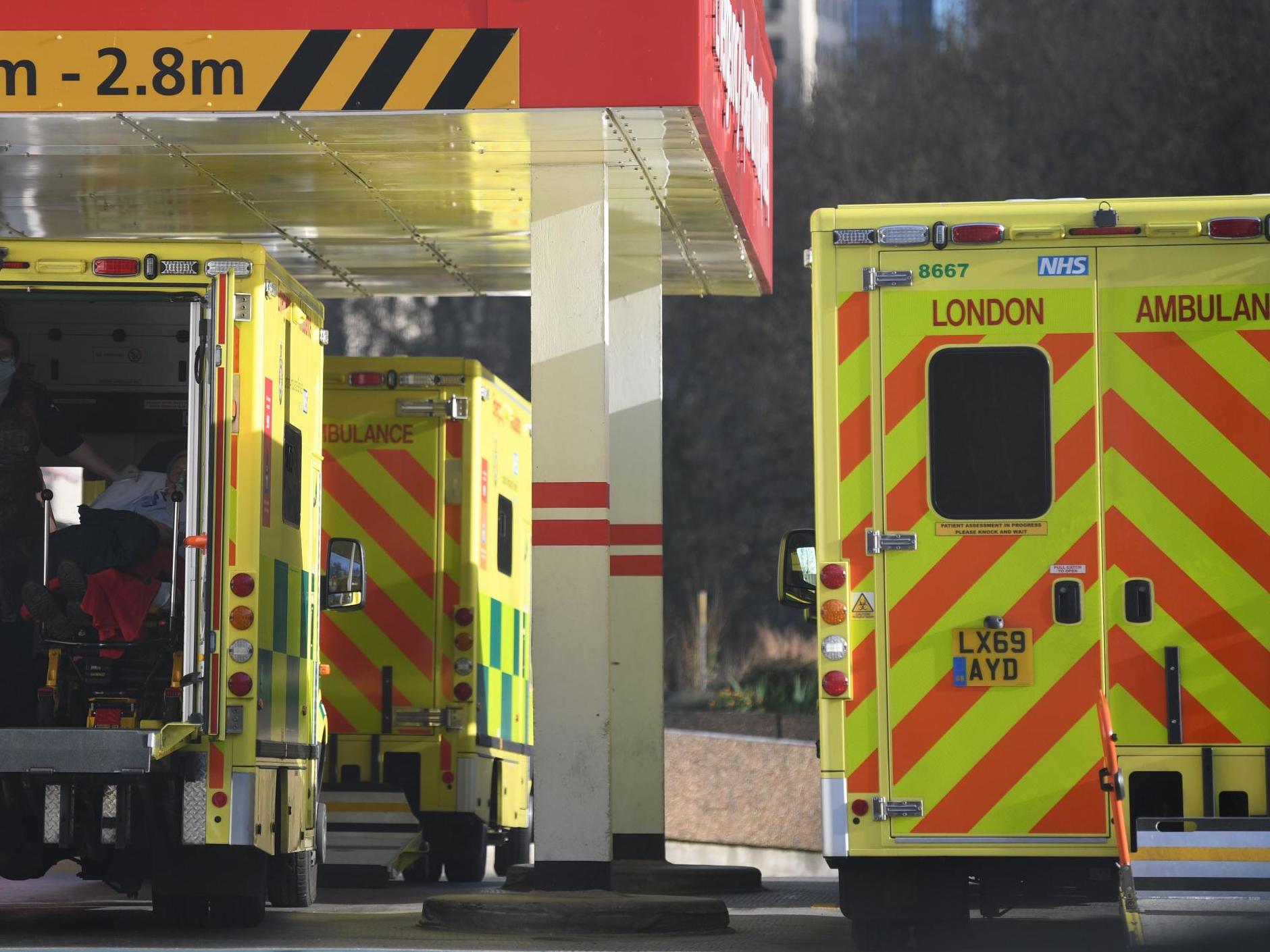Coronavirus: Record fall in A&E attendances sparks fear sick people could be avoiding hospitals
‘We are concerned this drop in attendance may mean people with serious health problems are avoiding going to emergency departments for fear of getting coronavirus’

Medical leaders have warned sick patients not to avoid getting help from the NHS after a huge drop in the numbers of people attending A&E departments sparked fears some could die without care.
In March, the number of people going to their local emergency department fell by 600,000, or 29 per cent, compared to same month last year, the lowest number of attendances since 2010.
While the NHS has battled for years to reduce the number of people going to A&E for unnecessary reasons, the sudden fall during the coronavirus outbreak has worried officials that the pandemic could be deterring people who have genuine need and who could become sicker or even die as a result of staying away.
NHS England’s monthly statistics, released on Thursday, showed 1.5 million people attended A&E departments in England in March compared with more than 2.1 million in March 2019. These numbers had been rising year on year since records began.
In a joint statement, the Academy of Medical Royal Colleges (AoMRC) warned patients not to avoid seeking medical help when they should.
It said: “During this Covid-19 pandemic it is vitally important that patients and the public recognise that they must continue to seek medical assistance if they have symptoms which cause concern, or they already are being treated for a serious health condition.
“The risk of developing other serious or life-threatening conditions remains unchanged and people must be fully confident that they can, and should, seek medical assistance if they are worried about themselves or a relative.”
While many routine appointments and operations have been cancelled, NHS hospitals have reconfigured their wards and buildings to segregate coronavirus patients from others and to provide treatment separately where possible.
The AoMRC added: “We know from previous epidemics that there is a danger of increased harm and deaths from issues that are not related to Covid-19 because patients have not sought treatment for other urgent or serious health problems.
“Not seeking help when it is really required may place your health, and even your life, at risk. Deterioration of your condition will be worse for you and could place additional burden on the NHS.”
The president of the Royal College of Emergency Medicine, Dr Katherine Henderson, added: “We are concerned that this drop in attendance may mean that people with serious health problems are avoiding going to their emergency department for fear of getting coronavirus.
“But do seek medical help if you need it – don’t stay at home with a heart attack out of fear. Our emergency departments have specific areas for Covid-19 patients, and we treat other ailments in another part. Our healthcare system is still ‘open for business’ and you will be seen.”
The UK’s chief medical officer Professor Chris Whitty has warned of the effects of “indirect deaths” as a result of the pandemic, which he said included not only deaths from the health system being overwhelmed but also deaths as a result of postponed or cancelled healthcare and the long-term socioeconomic effects of the lockdown on people’s wider health and wealth.
Concerns have been raised that the inequality of the lockdown restrictions disproportionately affects those on lower incomes, in the service industry and who live in dense housing without open spaces.
NHS England’s medical director Stephen Powis said at the Downing Street press conference yesterday that anyone with symptoms of a stroke or heart attack should seek emergency help.
He said: “You should be seeking emergency services just as you always have done. They are there for you, and, although we are focusing on coronavirus, it’s important we continue to focus on other emergency conditions.”
Join our commenting forum
Join thought-provoking conversations, follow other Independent readers and see their replies
Comments
Bookmark popover
Removed from bookmarks